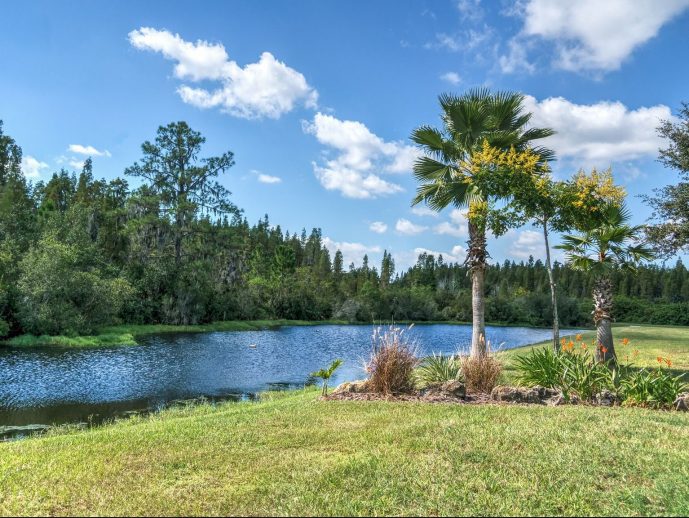Categories more
- Adventures (17)
- Arts / Collectables (15)
- Automotive (37)
- Aviation (11)
- Bath, Body, & Health (77)
- Children (6)
- Cigars / Spirits (32)
- Cuisine (16)
- Design/Architecture (22)
- Electronics (13)
- Entertainment (4)
- Event Planning (5)
- Fashion (46)
- Finance (9)
- Gifts / Misc (6)
- Home Decor (45)
- Jewelry (41)
- Pets (3)
- Philanthropy (1)
- Real Estate (16)
- Services (23)
- Sports / Golf (14)
- Vacation / Travel (60)
- Watches / Pens (15)
- Wines / Vines (24)
- Yachting / Boating (17)
How to Prepare Your Trees for Florida’s Hurricane Season
Published
08/31/2024Living in Florida comes with many perks: warm weather, beautiful beaches, and abundant greenery. However, it also means dealing with hurricane season, which can threaten both your property and the lush landscape around it. Trees, in particular, require special attention, as they can pose risks during storms if not properly maintained. Preparing your trees for Florida’s hurricane season can help protect your home, minimize potential hazards, and keep your landscape healthy.
Let’s take a walk through some essential steps you can take to safeguard your trees and your property during the unpredictable hurricane season.
1. Why Tree Preparation Matters
Hurricanes, high winds and heavy rains can cause even the healthiest trees to become hazards. Broken branches or uprooted trees can wreak havoc on your home and property. That’s why getting your trees assessed by a trusted tree service Port Orange experts before the storm season is so important. An expert can spot potential issues and recommend steps to keep your trees sturdy and safe.
2. Give Your Trees a Thorough Inspection
Before hurricane season starts, take a good look at your trees. Check for any signs of weakness—dead branches, cracks in the trunk, or disease. Trees that lean or have exposed roots are especially risky. For a professional evaluation, reach out to a local specialist in tree service. They’ll help identify any potential problems and guide you on how to fortify your trees against the storm.
3. Pruning: Strengthening Your Trees
Think of pruning as a makeover for your trees. By trimming away dead or weak branches, you’re not just tidying up; you’re reducing the risk of those branches breaking off in high winds. This can prevent damage to your home and garden.
Pruning Tips:
- Remove Dead or Diseased Limbs: These are the first to go during a storm and can cause dangerous debris.
- Thin Out the Canopy: A dense canopy catches more wind, making the tree more likely to topple. Thinning it out allows wind to pass through more easily.
- Don’t Over-Prune: While it’s tempting to trim everything, too much pruning can weaken the tree. Aim for a balance that maintains the tree’s health and structure.
If you’re not sure how to go about pruning, a professional tree trimming Daytona expert can provide you what you need. They’ll ensure your trees are prepared without compromising their health.
4. Support Young and Newly Planted Trees
Young trees are particularly vulnerable during hurricanes because their roots haven’t fully established. Staking them can offer extra support. Use flexible ties that allow the tree to move slightly, encouraging strong root development.
Remember not to over-tighten the stakes or leave them in place too long. After about a year, once the roots are stronger, you should remove the stakes to allow the tree to grow naturally.
5. Protecting the Roots
A comfy blanket for your trees is what mulching is like. It helps keep the soil moist, reduces erosion, and insulates the roots. This makes your trees more stable and resilient.
Mulching Tips:
- Choose Organic Mulch: Wood chips or bark are perfect as they decompose and enrich the soil.
- Apply a 2 to 4-Inch Layer: Spread mulch around the base but avoid piling it directly against the trunk to prevent rot.
- Extend Beyond the Drip Line: This ensures the roots, which extend beyond the canopy, are also protected.
6. When to Consider Tree Removal
Sometimes, the safest option is to remove a tree, especially if it’s diseased, damaged, or too close to structures. Removing these potential hazards before hurricane season can prevent them from becoming dangerous.
7. Prepare Your Property Beyond the Trees
Don’t forget about the rest of your property. Secure loose items like garden furniture to prevent them from becoming projectiles. If you have hardscaping features, like driveways or patios, it might be worth talking to a paver contractor to ensure they’re in good shape and ready for storm conditions. After the storm, check your trees for any damage. Fallen branches or uprooted trees may need professional attention.
Hurricanes aren’t going anywhere, but by taking care of your trees now, you can help them withstand whatever Mother Nature throws their way. Regular maintenance, a little extra attention, and calling in the professionals when needed can make all the difference. So, as you prepare kit this season, don’t forget about your trees. Give them some love, and they’ll stand tall through the storm.
And when the skies clear and the winds settle, you’ll be thankful your trees stayed rooted – just like you.















